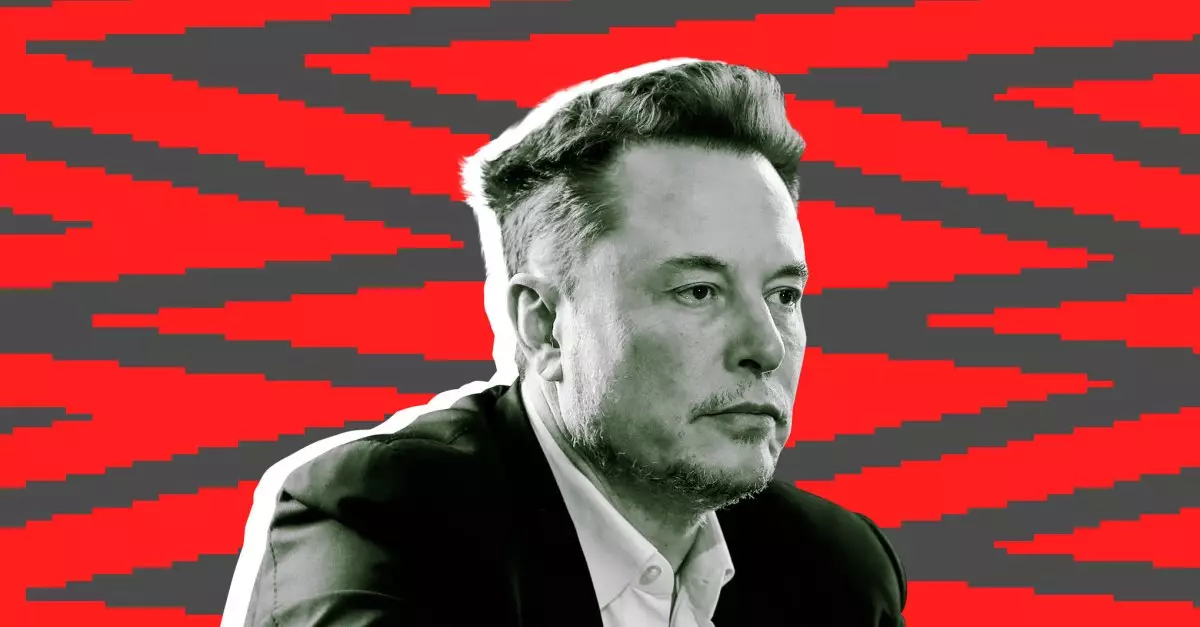The recent tempest surrounding the leadership of Tesla has sent ripples through the automotive and technology industries. After a report surfaced in *The Wall Street Journal* questioning whether the company’s board was actively searching for a successor to Elon Musk, the response from Tesla’s hierarchy was both swift and vehement. The tenor of the discussion raises significant questions about not only the stability of leadership at Tesla but also about the dynamics of corporate governance in a rapidly evolving industry.
According to the initial report from the *WSJ*, the board had reached out to executive search firms to identify a potential new CEO. This heightened speculation suggested that internal discontent regarding Musk’s diversifying focus — particularly his attention toward cryptocurrency and his political entanglements — may have prompted board members to consider a leadership change. However, the board’s chair, Robyn Denholm, publicly refuted these claims, maintaining that no such search had taken place. This back-and-forth highlights a concerning dissonance between public perception and internal board realities.
The Implications of Musk’s Leadership Style
Elon Musk is renowned for his unconventional approach to leadership, and while this has propelled Tesla into the limelight, his recent actions raise eyebrows. The reported need from the board for Musk to dedicate more time to the company’s core business instead of personal interests illustrates the growing concerns surrounding profitability and corporate responsibility. Tesla has faced challenges recently, such as waning sales and a dip in revenue, amplifying the pressure on Musk to refocus his efforts on stabilizing the company.
This scrutiny isn’t limited to Musk’s public persona but extends to the board’s composition and governance structure as well. Some industry analysts have described the current board dynamics as overly sycophantic, where members appear to prioritize allegiance to Musk over the company’s long-term vision. This perception is exacerbated by the context of last year’s controversial compensation package awarded to Musk, which raised ethical questions about corporate governance standards at Tesla.
A Financial Perspective on Board Actions
Interestingly, amid the denials from the board regarding any CEO search, Denholm’s recent actions could indicate a lack of confidence in the company’s direction. The sale of over $32 million worth of Tesla shares by Denholm, notably her third significant sale in recent months, raises questions about her commitment to the company’s future. While stock sales can occur for a myriad of reasons—such as personal financial planning or market adjustments—the timing of these sales could be interpreted as indicative of underlying uncertainty within the board’s ranks and a potential lack of faith in Musk’s leadership.
The juxtaposition of board members selling their shares against the backdrop of defending Musk’s leadership fuels speculation. If board members are concurrently externalizing their stakes in the company while asserting confidence in Musk, it could present a mixed message to investors and the market at large. Shareholder relations play a critical role in corporate success, and any misalignment between the board’s actions and its public statements could jeopardize Tesla’s market position.
The Broader Context of Disruptive Leadership
Moreover, this tempest within Tesla must be viewed against the backdrop of a larger trend within the tech industry. Companies led by strong personalities often oscillate between periods of bold innovation and crises of confidence. As seen in firms such as Amazon and Meta, when visionary leaders become embroiled in controversies or when their strategic focus drifts, questions about their continued suitability for the helm often emerge.
In this light, Tesla’s current situation serves as a revealing case study of how organizational health can be compromised by the very strengths that propelled the company to its current heights. The innovative spirit that Musk embodies is also fraught with risk, and Tesla is precariously balancing on the tightrope of visionary leadership versus organizational sustainability.
While the public denial from Tesla’s board reflects an attempt to project unity and confidence, the underlying tensions cannot be ignored. As the conversation about leadership at Tesla unfolds, it presents an invaluable lesson in the complexities of corporate governance and the environment inherent in industries undergoing rapid transformation. The future may reveal whether the board’s confidence is justified or if, indeed, a leadership transition will be necessitated by the evolving landscape.

